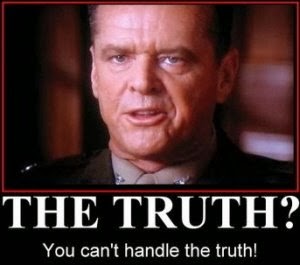In “A Few Good Men” Jack Nicholson growls “You can’t handle the truth” to Tom Cruise in his Academy award winning performance. Watch a clip of his gritty performance: A few good men. Our pursuit of the truth leads to an interesting path indeed.
This series of posts has as objective to help you develop a scientific “sense”. Have a quick peek at my other posts (http://mivip-utoronto.blogspot.ca/) if you haven’t already and come back. So wanting to know the truth is something we all strive for on a daily basis. Finding the truth is another matter altogether and this philosophical conundrum has challenged many great minds for centuries.
The Roman Emperor Marcus Aurelius once stated many, many years ago: “Everything we hear is an opinion, not a fact. Everything we see is a perspective, not the truth”. Have a quick peek at the trailer for “Gladiator” to put you in the mood. Gladiator
Now Greek philosopher Plato, who predated Marcus a few centuries, got the ball rolling when he presented his Allegory of the Cave, in which he symbolically described his belief that the world revealed by our senses is not the real world but only a poor copy of it, and that the real world can only be apprehended intellectually. Plato used an analogy where we are represented as a gathering of people who live chained to the wall of a cave all of our lives, facing a blank wall. We watch shadows projected on the wall by things passing in front of a fire behind them, and begin to designate names to these shadows. The shadows are as close as we get to viewing reality.

